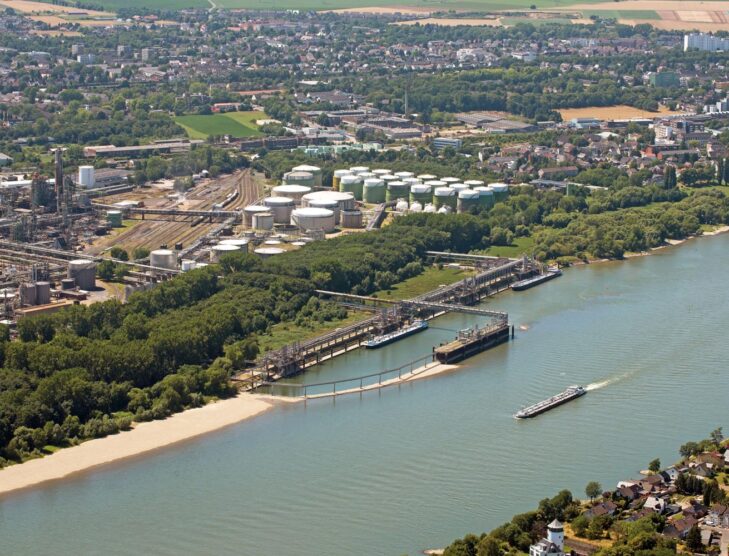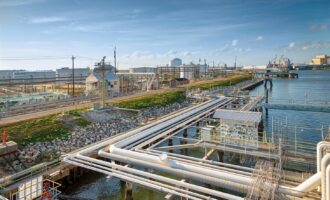
Shell to shift away from processing crude oil in Wesseling
Royal Dutch Shell plans to shift its Shell Rheinland refinery at Wesseling, Germany, away from crude oil and towards low or zero carbon products from 2025, the Anglo-Dutch international energy company said yesterday. Under its transformation plans, the complex will become Shell Energy and Chemicals Park Rheinland, which will focus on renewable energy-derived hydrogen, sustainable aviation fuels (SAF) and renewable liquefied biogas (bio-LNG).
Crude oil is to be replaced in the future with new or reallocated plants. For more CO2 -free or low-CO2 products, hydrogen, circular waste materials and biogenic input materials are increasingly being used. For this purpose, existing systems in Wesseling are to be dismantled, new ones created and existing ones converted or rededicated. The plans for the cessation of crude oil processing are still at the beginning. A final investment decision is still pending, Shell said.
Europe’s largest PEM hydrogen electrolysis plant is in Wesseling
In July, Europe’s largest PEM hydrogen electrolysis plant for the production of green hydrogen, REFHYNE, was officially inaugurated in Wesseling. Shell is already planning to build a 100 MW electrolysis plant. In addition, a Bio-PTL plant is planned, in which synthetic aviation fuels and petroleum are produced from green electricity and biomass. Both projects are at an advanced planning stage, but a final investment decision is still to be made. The final investment decision has already been made for a plant for the production of bio-LNG for heavy goods vehicles.
Wesseling is one of two sites that make up the Shell Rheinland refinery complex and out of a total 340,000 barrels per day (bpd) capacity, it accounts for 150,000 bpd. The other site is Cologne-Godorf, which will continue to process crude oil.
The plants employ a total of 3,000 people, of which half are with Shell and the rest with contractor firms. Shell said it has informed its employees yesterday about its plans to stop crude oil processing at the Wesseling site from 2025. Shell also said it would try and avoid redundancies, as workers could be switched to other jobs, retrained, or retired.
The Shell Verbund in North-West Europe will ensure the security of supply with fuels and other mineral oil products in the coming years, Shell said.
Net-zero emissions by 2050
Shell aims to become a net-zero emissions company by 2050 at the latest. With the renovations in Wesseling, Shell Rheinland will directly save one million tons of direct CO2 emissions annually.
“The transformation from the hitherto energy-intensive industries to climate-neutral companies is an important contribution to reducing the emission of climate-damaging gases as quickly as possible, curbing climate change and actively protecting resources,” said the North Rhine-Westphalian Environment Minister Ursula Heinen- Eater. “We therefore welcome the conversion announced by Shell and the associated CO 2 -neutrality of the refinery site and most of the products produced there. The plans presented today for the ‘crude oil-free’ part of the refinery by 2025 are an impressive signal in this context and also an important step towards the desired goal of a climate-neutral energy system.”
“As a refinery, we have played an important role in the fossil energy market over the past few decades. We want to take over this in the future with a completely changed product portfolio as Energy and Chemicals Park Rheinland,” says Dr. Marco Richrath, general manager of the Energy and Chemicals Park Rheinland. “Especially in the course of the energy transition, we want to be a reliable partner for society, business and politics.”









